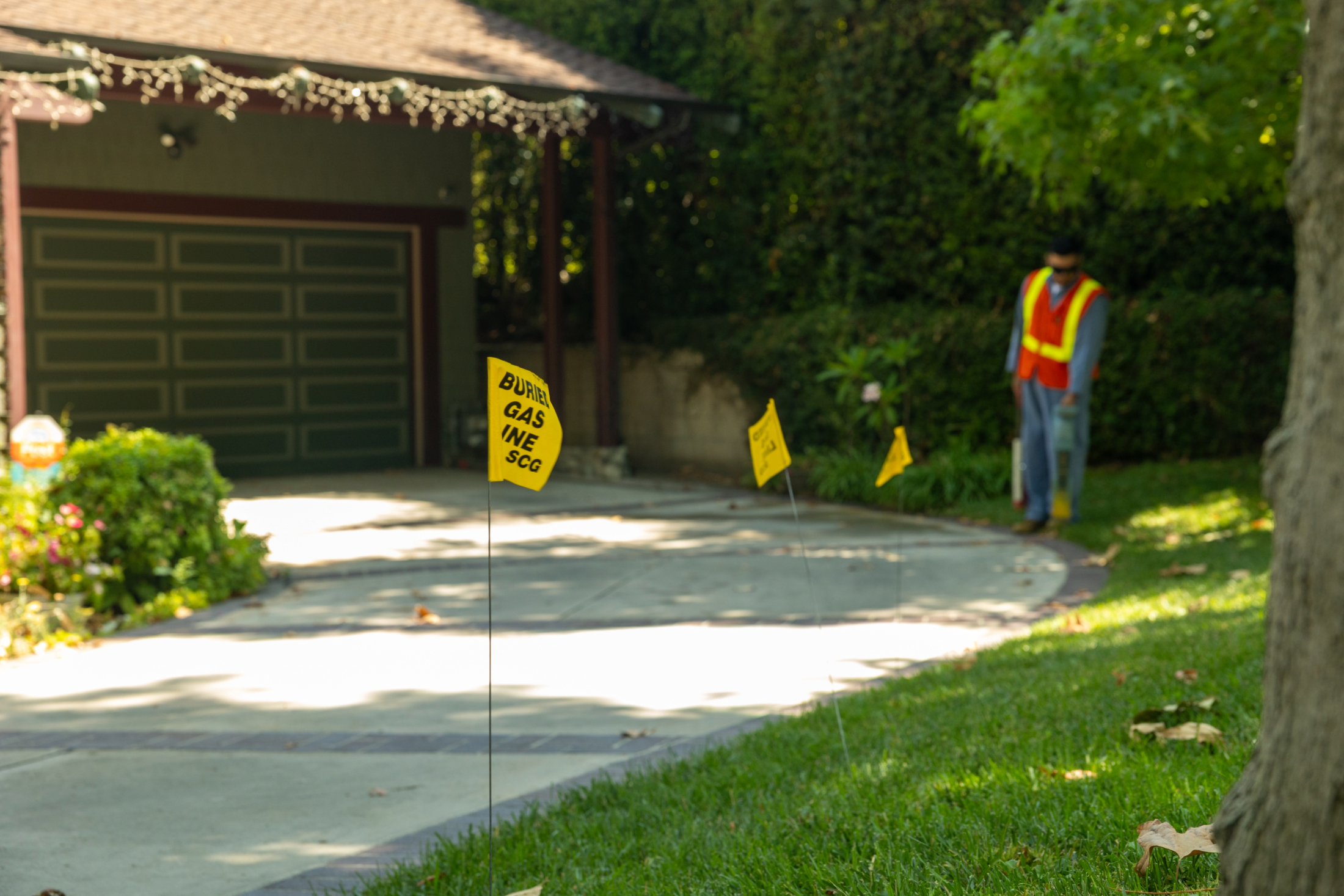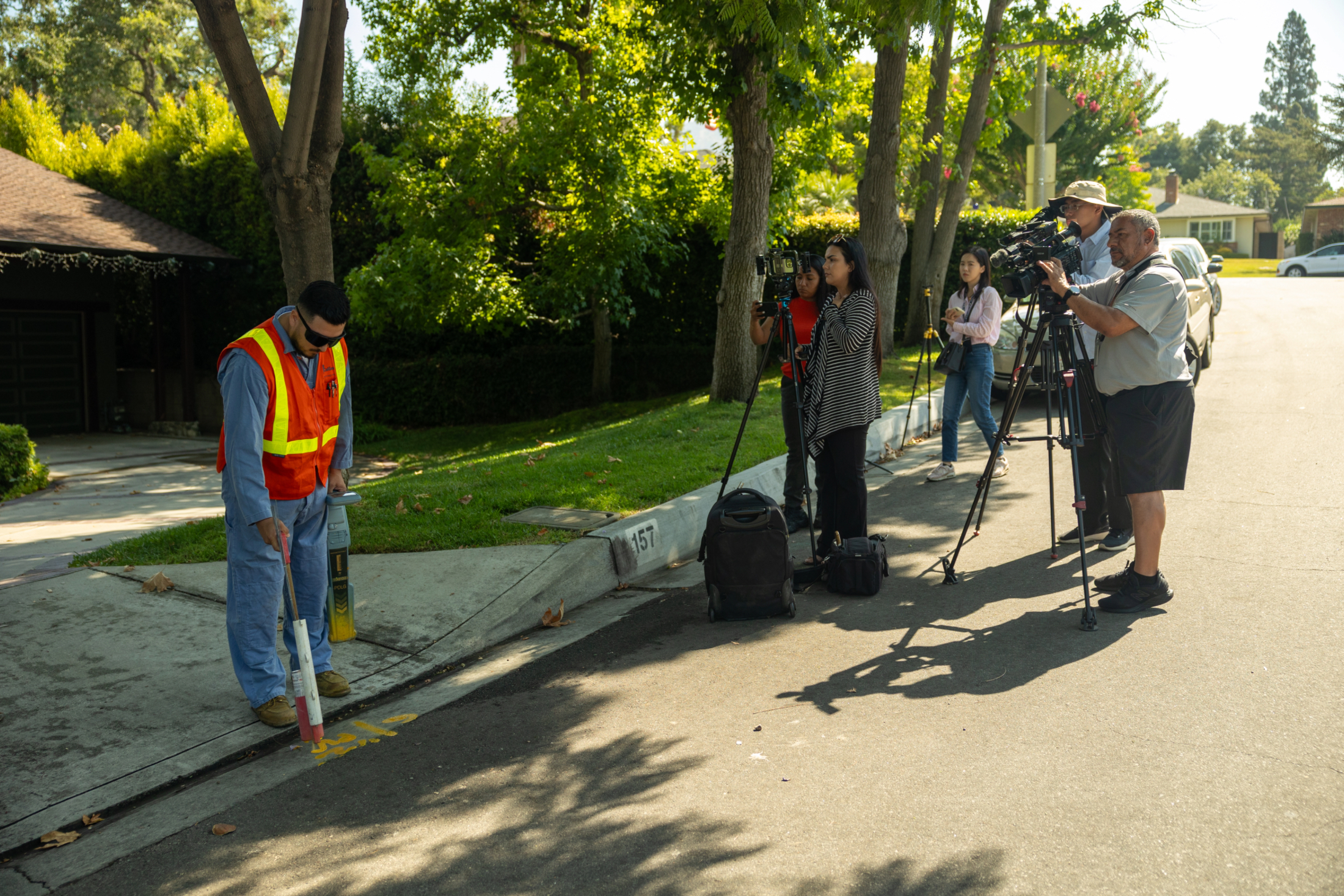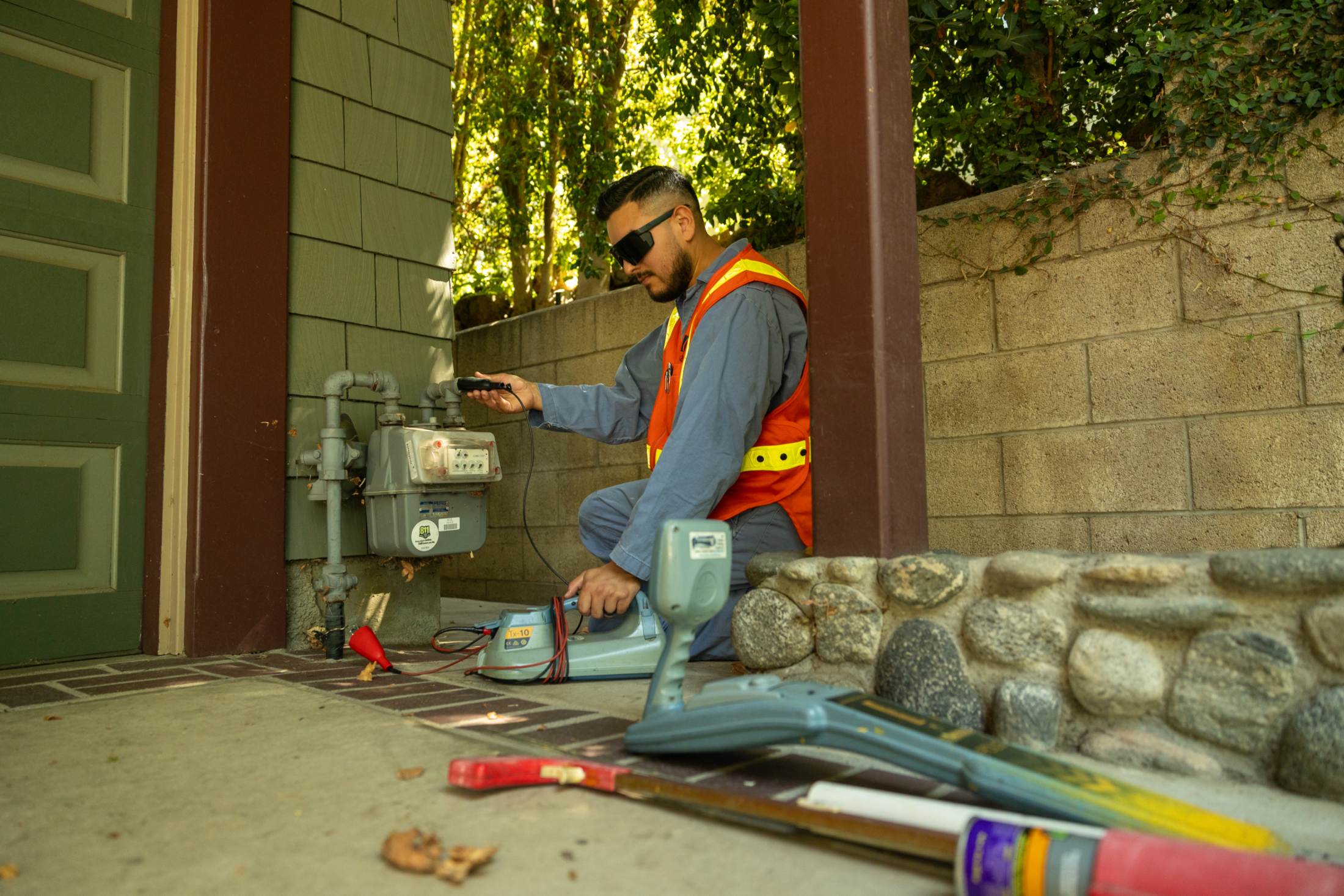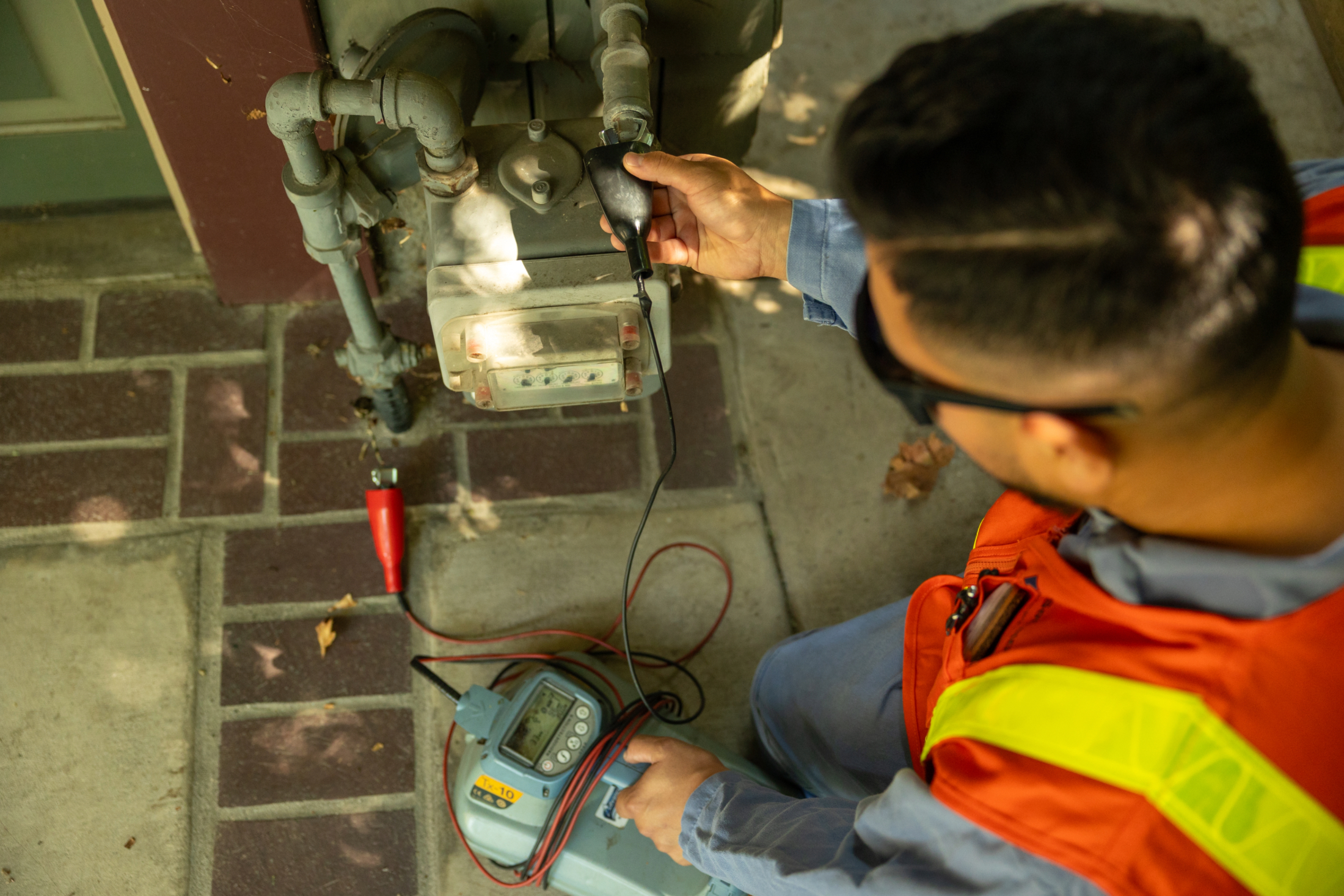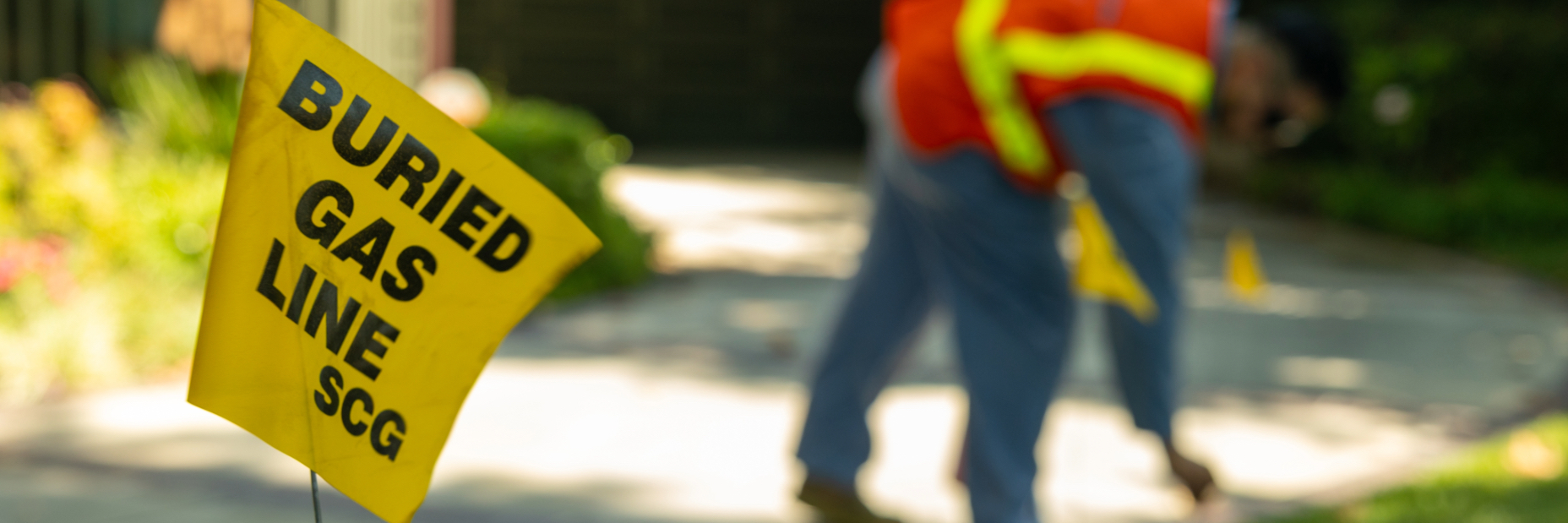
SoCalGas Observes 811 Day with Safety Reminder, Reports Lowest Number of Dig-In Incidents in a Decade
Media Assets Here
Aug. 11, 2025
LOS ANGELES – Southern California Gas Co. (SoCalGas) is recognizing National Safe Digging Day—also known as 811 Day—by reinforcing the importance of contacting 811 before starting any digging project, continuing its “Always Call 811” campaign and announcing that excavation related damages in its service territory reached its lowest in a decade. This milestone underscores the effectiveness of continued public awareness efforts and the importance of safe digging practices in protecting communities and critical infrastructure.
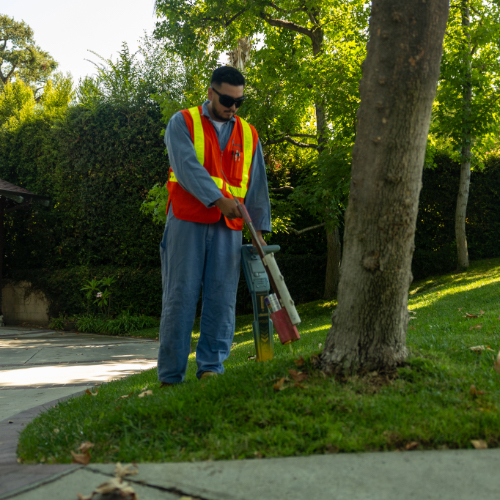
Whether installing a mailbox, planting a tree, or undertaking a major construction project, contacting 811 at least two business days before digging is not only free—it’s the law in California. Utility lines can be just below the surface, and calling 811 ensures that SoCalGas and other local utility owners can mark the location of underground lines to prevent accidents.
In 2024, SoCalGas recorded the lowest number of excavation pipeline damages—known in the utility industry as “dig-ins”—in a decade, with approximately 2,200 incidents across its service territory, down over 33% from 2014. Notably, about 60% of these dig-ins resulted from a failure to contact 811 before digging, and nearly 80% occurred on private property.
“Every dig-in is preventable,” said Cedric Williams, chief safety officer at SoCalGas. “Whether you're a homeowner or a contractor, calling 811 before you dig is not just the safest and smartest first step—it’s also the law. It helps protect lives, property, and the essential utility services we all rely on.”
This year’s “Always Call 811” campaign looks to build on 811 education and success and will run on several platforms, including digital, social media, radio, and television to encourage customers and contractors alike to call 811 before digging.
How 811 Works:
- Mark your proposed digging area in white using chalk, white paint, or flags.
- Contact 811 by phone or online at socalgas.com/811 at least two business days before digging (excluding the day of notification).
- Utility companies will send trained locators—often in uniform and with identification—to mark underground lines using color-coded paint or flags. You may receive a confirmation email or text.
- An Underground Service Alert (USA) ticket will be issued and is valid for 28 days. If work continues beyond that period, the ticket must be renewed.
- Use only hand tools within 24 inches of marked lines and dig with caution.
The “Always Call 811” campaign promotes safe digging practices that protect customers, the public, contractors, and utility workers safe as prescribed by the law. In 2019, SoCalGas employee Wade Kilpatrick was killed when a contractor failed to contact 811, damaging a gas pipeline and causing an explosion. In response, the California Legislature passed the Wade Kilpatrick Gas Safety Act of 2021 (SB 297), which increased civil penalties for excavators who knowingly damage underground infrastructure.
Recognizing a Gas Leak – Look, Listen, Smell:
- Look for signs like dirt or water blowing into the air, dead vegetation, or fire.
- Listen for hissing or whistling sounds.
- Smell for the distinctive odor of natural gas.
If you suspect a leak, evacuate immediately and call 911 and SoCalGas at 1-800-427-2200 from a safe location.
For more information about safe digging and the 811 process, visit socalgas.com/811.
Photo Gallery
About SoCalGas
SoCalGas is the largest gas distribution utility in the United States, serving more than 21 million consumers across approximately 24,000 square miles of Central and Southern California. Our mission is: Safe, Reliable, and Affordable energy delivery today. Ready for tomorrow. SoCalGas is a recognized leader in the energy industry and has been named Corporate Member of the Year by the Los Angeles Chamber of Commerce for its volunteer leadership in the communities it serves. SoCalGas is a subsidiary of Sempra (NYSE: SRE), a leading North American energy infrastructure company. For more information, visit SoCalGas.com/newsroom or connect with SoCalGas on social media @SoCalGas.
This news blog contains forward-looking statements within the meaning of the Private Securities Litigation Reform Act of 1995. Forward-looking statements are based on assumptions about the future, involve risks and uncertainties, and are not guarantees. Future results may differ materially from those expressed or implied in any forward-looking statement. These forward-looking statements represent our estimates and assumptions only as of the date of this blog news. We assume no obligation to update or revise any forward-looking statement as a result of new information, future events or otherwise.
In this news blog, forward-looking statements can be identified by words such as “believe,” “expect,” “intend,” “anticipate,” “contemplate,” “plan,” “estimate,” “project,” “forecast,” “envision,” “should,” “could,” “would,” “will,” “confident,” “may,” “can,” “potential,” “possible,” “proposed,” “in process,” “construct,” “develop,” “opportunity,” “preliminary,” “pro forma,” “strategic,” “initiative,” "target," "outlook," “optimistic,” “poised,” “positioned,” “maintain,” “continue,” “progress,” “advance,” “goal,” “aim,” “commit,” or similar expressions, or when we discuss our guidance, priorities, strategies, goals, vision, mission, projections, intentions or expectations.
Factors, among others, that could cause actual results and events to differ materially from those expressed or implied in any forward-looking statement include: decisions, denials of cost recovery, audits, investigations, inquiries, ordered studies, regulations, denials or revocations of permits, consents, approvals or other authorizations, renewals of franchises, and other actions, including the failure to honor contracts and commitments, by the (i) California Public Utilities Commission (CPUC), U.S. Department of Energy, U.S. Internal Revenue Service and other regulatory bodies and (ii) U.S. and states, counties, cities and other jurisdictions therein where we do business; the success of business development efforts and construction projects, including risks related to, as applicable, (i) negotiating pricing and other terms in definitive contracts, (ii) completing construction projects or other transactions on schedule and budget, (iii) realizing anticipated benefits from any of these efforts if completed, (iv) obtaining regulatory and other approvals and (v) third parties honoring their contracts and commitments; changes to our capital expenditure plans and their potential impact on rate base or other growth; changes, due to evolving economic, political and other factors, to (i) trade and other foreign policy, including the imposition of tariffs by the U.S. and foreign countries, and (ii) laws and regulations, including those related to tax; litigation, arbitration, property disputes and other proceedings; cybersecurity threats, including by state and state-sponsored actors, of ransomware or other attacks on our systems or the systems of third parties with which we conduct business, including the energy grid or other energy infrastructure; the availability, uses, sufficiency, and cost of capital resources and our ability to borrow money or otherwise raise capital on favorable terms and meet our obligations, which can be affected by, among other things, (i) actions by credit rating agencies to downgrade our credit ratings or place those ratings on negative outlook, (ii) instability in the capital markets, and (iii) fluctuating interest rates and inflation; the impact on affordability of our customer rates and our cost of capital and on our ability to pass through higher costs to customers due to (i) volatility in inflation, interest rates and commodity prices and the imposition of tariffs and (ii) the cost of meeting the demand for lower carbon and reliable energy in California; the impact of climate policies, laws, rules, regulations, trends and required disclosures, including actions to reduce or eliminate reliance on natural gas, increased uncertainty in the political or regulatory environment for California natural gas distribution companies, the risk of nonrecovery for stranded assets, and uncertainty related to emerging technologies; weather, natural disasters, pandemics, accidents, equipment failures, explosions, terrorism, information system outages or other events, such as work stoppages, that disrupt our operations, damage our facilities or systems, cause the release of harmful materials or fires or subject us to liability for damages, fines and penalties, some of which may not be recoverable through regulatory mechanisms or insurance or may impact our ability to obtain satisfactory levels of affordable insurance; the availability of natural gas and natural gas storage and transportation capacity, including disruptions caused by failures in the pipeline and storage systems or limitations on the injection and withdrawal of natural gas from storage facilities; and other uncertainties, some of which are difficult to predict and beyond our control.
These risks and uncertainties are further discussed in the reports that the company has filed with the U.S. Securities and Exchange Commission (SEC). These reports are available through the EDGAR system free-of-charge on the SEC's website, www.sec.gov, and on Sempra’s website, www.sempra.com. Investors should not rely unduly on any forward-looking statements.
Sempra Infrastructure, Sempra Infrastructure Partners, Sempra Texas, Sempra Texas Utilities, Oncor Electric Delivery Company LLC (Oncor) and Infraestructura Energética Nova, S.A.P.I. de C.V. (IEnova) are not the same companies as the California utilities, San Diego Gas & Electric Company or Southern California Gas Company, nor are they regulated by the CPUC.
